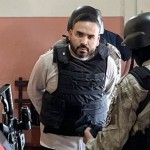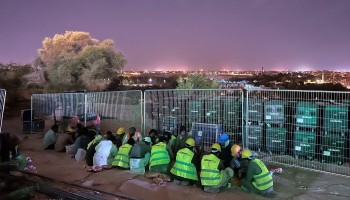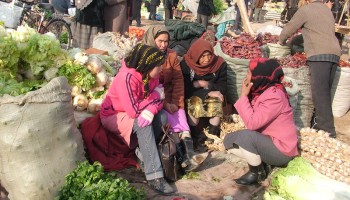Warring factions in Yemen have turned the country into one of the most dangerous places in the Middle East for journalists, detaining, torturing, and disappearing media workers in a campaign that has silenced reporting and gutted press freedom, Human Rights Watch said in a report released Thursday.
The 59-page report details how the Houthis, the Southern Transitional Council (STC), and forces loyal to Yemen’s internationally recognized government have targeted journalists since the country’s civil war erupted more than a decade ago. The abuses, researchers said, range from arbitrary detention and enforced disappearance to torture, surveillance, and the takeover of media outlets.
“Warring parties’ repeated attacks on journalists and media institutions have threatened the lives of dozens of journalists and have gravely undermined freedom of expression in Yemen,” said Niku Jafarnia, the group’s Yemen and Bahrain researcher.
The report, based on interviews with 27 people including 16 journalists, documented 14 cases of abuse since late 2023. Five journalists remain arbitrarily detained—three by the Houthis and two by the STC—while four others were forcibly disappeared. In some cases, security forces detained family members instead of journalists, using them as leverage to extract confessions or silence coverage.
The watchdog said abuses stretch back to 2014, when the Houthis seized the capital, Sanaa. Several journalists were held for years under death sentences, tortured, and later released only through prisoner exchanges. Dozens of reporters have been killed in the fighting, including targeted assassinations and deaths in Saudi-led coalition airstrikes. The National Organization of Yemeni Media Professionals recorded at least 63 killings of journalists and media workers between 2015 and 2023, with almost no credible investigations.
Survivors of detention told Human Rights Watch they were singled out for harsher treatment than other prisoners. One journalist, Abdelkhaleq Emran, recalled a Houthi prison official telling him: “We pray to God by torturing journalists.” Others described beatings, electric shocks, and suspension by the wrists, as well as denial of medical care. Some said they continue to suffer lasting health problems.
The climate of fear has driven many reporters into exile. Those who remain often conceal their identities or self-censor. A freelancer in Aden said she lists her occupation as “student” in her passport to avoid trouble at checkpoints. Female journalists also face heightened risks, including harassment, stigma, and community pressure after release from detention, the report noted.
Alongside attacks on individuals, warring factions have taken over or shut down media institutions. The Houthis and STC seized outlets such as Yemen Live for Media Production, Yemen Digital Media, Sawt al-Yemen, and the state-run SABA news agency, replacing staff and tightening control over coverage.
The group said authorities in Yemen are bound under international and domestic law to protect free expression, not suppress it. It urged United Nations member states to raise violations at the upcoming Human Rights Council session in Geneva and called on UN special rapporteurs to request access to Yemen.
“All warring parties should immediately release journalists who remain wrongly detained and end their abusive practices against journalists and media institutions,” HRW’s Niku Jafarnia said. “The international community should also put an end to their inaction concerning the ongoing violations i Yemen and ensure that warring parties are held to account.”






